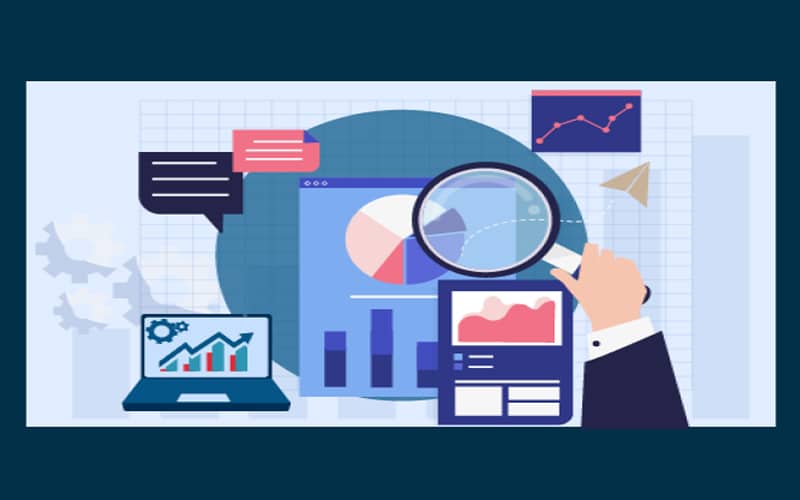Understanding self-analysis as a trader
Many traders should regularly take a good look at themselves concerning how they conduct themselves in the financial markets. The difference between market analysis and self-analysis is simple. With market analysis, there is only a finite amount that is sufficient. Sure, there are always new things one can learn for interest’s sake or things that could improve trading performance. However, self-analysis is more critical as it often correlates to trading success for several reasons.
You can be the best technical analyst in the world, though, without an analysis of yourself, it will be tough to prosper in the markets. This type of analysis encompasses a range of things that include self-discipline, your financial position, your patience levels, taking responsibility, being realistic with the achievable growth, and seeing the markets for what they are instead of a fantasy.
Everything good or bad that happens with a trader in the market is almost entirely their responsibility, a direct result of something they did. Markets can sometimes reward bad habits and punish good ones. For the long term, though, without looking at yourself, bad practices are not sustainable in the grand scheme of things.
There are many variables from a technical or market analysis that are beyond our control. The only variables in our control are how much we risk consistently and how we react when we profit or lose from a trade. The latter actions determine the next step in our trading careers that will either move us forward or backward. So, there is a bridge that one crosses between market and self-analysis.
Traders playing the blame game
Many losing traders will often blame their signal provider, their mentor, or their brokers for their failures. In the pursuit of the hottest trading strategies, expert advisors, or the best trading signals, they can easily get lost in how much money they can make rather than the risks involved. By analyzing yourself, you will understand that even with a great mentor or an excellent trading strategy, your success is still primarily your responsibility.
The majority of new traders put too much energy on market analysis. While you can thoroughly comprehend position sizing, putting it into practice is an entirely different story. When you commit to a risk on a trade, it is not just giving the risk a dollar amount, but more importantly, it is whether you can afford the risk in real financial terms.
Most traders who lose money trading use excessive leverage, which is not proportional to how much they can afford to lose. Industry experts keep preaching that new traders must use disposable income in their live accounts instead of income they cannot afford to lose for this reason. Such a realization then requires a trader to look at themselves and how much money they can easily afford to lose. Using excessive leverage is not the broker’s fault, as it lies solely as the trader’s responsibility.
New traders can also fall into the trap of searching for the Holy Grail with the belief that you only need to be an advanced technical analyst to make money. In this almost never-ending pursuit, traders can waste a lot of money, and this is one of the main dangers. Secondly, once someone has the mentality of needing to be right at every moment, they are usually not too far from a ‘revenge’ trade that will cause a substantial loss. By analyzing and being honest with yourself about the risks involved in trading, you become more grounded in the markets’ reality. Markets tend to function illogically. To comprehend this nature is to operate with it instead of against it.
The value in understanding yourself as a trader
The ways to bridge the gap between market analysis and self-analysis involve knowing what type of trader one is. Are you a scalper, day trader, swing trader, or position size trader? All of these styles require four vastly different types of people and mindsets. Each system comes with its unique strengths and weaknesses from a technical and personal perspective.
Some traders have more time to trade the markets, and their personalities are more care-free and impatient. They will tend to gravitate towards scalping and day trading than other trading styles since they are more congruent with who they are. The cons of these approaches are that they need high levels of concentration, quick reactions, and a lot of time spent looking at charts.
Other people have less time to spend trading and are naturally more risk-averse and patient. So, they will lean towards more hands-off trading styles like swing trading because they can spend far less time on the charts. As a consequence, they have accepted that there is not a lot of action in doing so.
If one finds themselves lacking patience consistently, there is no harm in switching to another trading style if they can fully comprehend the shift necessary. If one begins to have less time analyzing the markets, they may consider swing trading, for example, if they can handle all the intricacies that come with it.
Conclusion
Traders need to ask themselves questions like:
- Am I instilling the right habits?
- What type of trader am I?
- Am I acting neutrally instead of believing I can control the market?
- Am I thinking of risk before profits?
- Am I keeping track of my progress?
- Am I patient enough to trade only when my edge or ideal set-up presents itself?
- Am I risking money per trade that I can afford to lose?
These are just some considerations that one needs to have consistently in financial markets. They all involve talking to yourself honestly (self-analysis) and momentarily stepping away from getting bogged down with market analysis. Ultimately, whatever you tell yourself is what your actions will be when you trade, and these actions can be beneficial or deterring. You have to make sure that whatever you tell yourself is in line with reality. The markets never reward bad habits forever. Sooner or later, they catch up with anyone. Self-analysis allows one to ensure that their actions are consistent and for long-term survival and growth.








